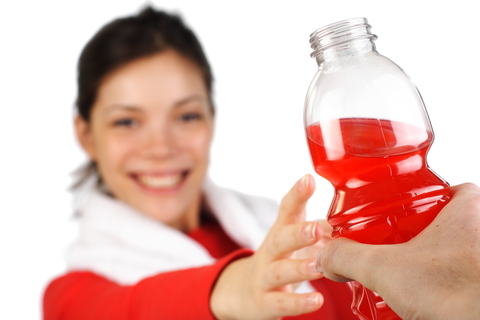January 3rd, 2024

Your feedback is very important to us at Pioneer Dental. We always want to make sure that our practice is meeting its full potential, so whether you’ve visited Dr. Carl Meyers once or been a loyal patient throughout the years, we encourage you to share your thoughts about your experience with us!
You can do this easily by giving us a review on our Facebook page or writing down your comments below. If you feel more comfortable, you’re always welcome to give our West Bend, WI office a call, too! We feel fortunate to have you all as patients and look forward to reading all your feedback!
December 28th, 2023

Spilling soda on someone’s white shirt, telling an off-color joke at an inappropriate time, or sneezing chewed food all over the dinner table all pale in comparison to the socially unacceptable, embarrassing blunder of having ... bad breath!
Five Possible Causes of Halitosis
- Poor oral hygiene practices. Failing to brush your teeth encourages anaerobic bacteria growth, which involves a type of bacteria that emits volatile sulfur compounds (gases) responsible for smelly breath.
- If you have tonsils, you may have tonsil stones embedded in the fissures of your tonsils. Tonsil stones are hard, tiny pieces of bacteria, dead oral tissue, and mucus that form inside tonsil crevices. When accidentally chewed, they release extremely foul odors that others can smell and you can actually taste.
- You have a chronically dry mouth due to medications, allergies, or persistent sinus conditions that force you to breathe through your mouth. Anaerobic bacteria thrive in dry, stagnant environments where oxygen content is minimal. Consequently, a dry mouth tends to lead to smelly breath.
- You have acid indigestion or GERD (gastroesophageal reflux disease). If you constantly belch stomach gases, this not only causes your breath to smell fetid but it can lead to enamel erosion and tooth decay.
- You have one or more oral diseases: gingivitis, periodontitis, or infections in the gums known as abscesses.
Improving oral hygiene practices may eliminate bad breath, but if brushing, flossing, and rinsing with a fluoride mouthwash twice a day doesn’t stop people from backing away from you when you open your mouth, it’s time to visit Pioneer Dental.
December 20th, 2023

Not many people look forward to going to the dentist, especially if you already know that you need dental work done. A small amount of anxiety is one thing, but dental phobia, or odontophobia, is something else entirely. It is an irrational fear of going to the dentist. If you have it, you might be unable to force yourself to go to the dentist, even if you are suffering from bad tooth pain. The effects of dental phobia can be serious, but there are ways to overcome your fear of the dentist to help you achieve and maintain good oral health.
Causes of Dental Phobia
You can develop dental phobia for a variety of reasons, including the following.
- Fear of pain, which you might acquire based on others’ horror stories of their trips to the dentist.
- Fear of needles, such as those used to provide anesthesia.
- A previous bad experience, when something went wrong and pain was intolerable.
- Lack of control from not knowing what is happening or how uncomfortable a procedure might be.
Consequences of Dental Phobia
Avoiding the dentist can have long-term consequences. When caught early, tooth decay is easily stopped with a minor filling. If you let the decay go, you can end up losing your tooth and have chronic pain. A dentist can also check for early signs of gum disease, which, if left untreated, could lead to losing one or more teeth.
Even if you do not have a particular problem, going to a dentist for regular cleanings is a good idea because the hygienist can point out where you need to brush better and remove the plaque from your teeth.
Getting Over Fear of the Dentist
Most patients with dental phobia can get over their condition. These are some approaches that Dr. Carl Meyers and our team recommend:
- Explain each step of the process
- Let you know that you can stop the procedure at any time
- Encourage you to come with a family member or friend
- Help you with deep breathing techniques
December 14th, 2023

Sports and energy drinks cause irreversible damage to the teeth of teens and young adults. A recent study published in General Dentistry states that energy and sports drinks contain so much acid that they begin destroying teeth after only five days of consistent use. According to the Academy of General Dentistry, an estimated 30 percent to 50 percent of U.S. teenagers consume energy drinks and as many as 62 percent consume at least one sports drink per day. The high acidity levels in the drinks erode tooth enamel and the result is irreversible damage.
Dr. Carl Meyers and our team at Pioneer Dental encourage our patients to limit their intake of sports drinks. The enamel erosion ultimately makes teeth more susceptible to bacteria and that can lead to hypersensitivity, staining, and tooth decay. If you do consume an energy or sports drink, make sure to wait at least 45 minutes until you brush, as consumption of acidic drinks causes tooth enamel to soften, making teeth more vulnerable to wear from the abrasives found in toothpaste.
Tooth decay is the most common chronic childhood disease, five times more common than asthma. It’s also preventable with proper care. Dr. Carl Meyers and our team can help identify early signs of erosion and offer solutions on how to prevent further damage and more serious problems from occurring.







